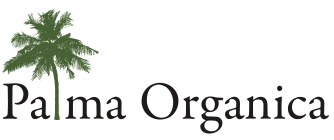Palma Organica Holland works with Nedoil in Sierra Leone with more than 2,000 smallholder farmers. Abdulai Gbla is one of these smallholders and has a 0,9 hectares oil palm farm. Being able to sell the oil palm fruits to the mill is very important to Mr. Gbla and his big family of thirteen, since farming is the only source of income that they have. Abdulai is also part of the Dimdin Farmer Based Organization (FBO), which was established to support smallholders within the region in various ways.

Palma Organica
Our commitment on the movement
We are glad to see that various stakeholders of palm oil industry are coming together in a movement towards 100% sustainable palm oil in Europe. Palma Organica is committed to certifying all its operations with RSPO standard and ensuring that all the oil it trades is 100% organic.
"Building of sustainable commodity chains is the critical bridge between empowering smallholders in Africa and providing honest and environmentally responsible consumer goods to our European clientele."Kalindi Lorenzo, Sustainability Coordinator
Our story
Palma Organica Holland’s supplier and sister company, Nedoil, works with more than 2,000 smallholder farmers around Yele town, Sierra Leone. Abdulai Gbla is a smallholder from Macankisa village near by Nedoil’s palm oil mill. Mr. Gbla has been a farmer for seventeen years. He really enjoys what he does and wishes to farm for the rest of his life. As like many other Sierra Leoneans, Abdulai has a small-scale plantation of 0.9 hectares with a great variety of interplanted crops. He joined Nedoil’s organic smallholder network in 2014. Being able to sell the oil palm fruits to the mill is very important to Mr. Gbla and his big family of thirteen, since farming is the only source of income that they have.
Abdulai is also part of the Dimdin Farmer Based Organization (FBO), which was established to support smallholders within the region in various ways. In 2016, Dimdin with the help of Nedoil received a RSPO Smallholder Support Fund grant aimed at the supporting smallholders to reach RSPO certification, which is a big challenge in the Sierra Leonean context. Members of the Dimdin FBO were not able to register ownership of their land, although it is one of the requirements of the RSPO standard. The farmers traditionally would meet the village elders who are in charge of the distribution of land. The elders would take the prospective smallholder to the town chief and then a piece of land is given to the farmers without any formal written documentation.
Nedoil in collaboration with Solidaridad West Africa initiated a land tenure project to formalize and document the ownership of these smallholders’ plantations. First, the consultations and awareness trainings were organized, then all 2,141 plantations were carefully mapped by Nedoil’s team and finally, on the basis of the results of mapping and consultations, the land tenure documentation was developed and signed by all the relevant stakeholders.
Mr. Gbla admitted that before this project he knew nothing about the land tenure. He said it was only during the mobilization and community sensitization when he learned about the importance of the land documentation.Additionally, Abdulai highlighted that now he feels more secure.
Our UN Sustainable Development Goals
My organisation is most concerned with the following 5 UN SDGs:
- Goal 1: No Poverty
- Goal 2: Zero Hunger
- Goal 8: Decent Work and Economic Growth
- Goal 12: Responsible Consumption and Production
- Goal 15: Life on Land
Our struggles and future plans
It was challenging to implement RSPO Principles and Criteria standard with the small-scale farmers in Sierra Leone.
The standard is designed for large growers and does not necessarily account for the smallholder context. However,
with the new standard for independent smallholder growers, we see a lot of potential in moving forward.
Our next activity will be to continue working with smallholder farmers in West Africa.The company plans to certify about 10,000 farmers with the new RSPO standard for independent smallholders and then import part of the oil to Europe.
Join us!
Sign up, switch to sustainable palm oil and join us in showing the positive impact on the ground and making sustainable palm oil a reality!
Are you committed? Join the Sustainable Palm Oil Choice.